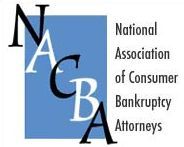The law does not have a minimum amount of debt to file chapter 7 bankruptcy. The answer is determined on a case-by-case basis. What may be a manageable amount of debt for one person may be overwhelming to someone else. The Bankruptcy Code provides that a chapter 7 case may be dismissed if granting a chapter 7 discharge to the debtor would be an abuse of the chapter 7 process. Essentially, if the amount of unsecured debt, including credit cards and personal loans, for example, is very low in comparison with the debtor’s income, it may be apparent that the debtor could afford to repay the debts, or to repay a substantial portion of the debts through a chapter 13 bankruptcy. Congress included some technical formulas in the Bankruptcy Code as a guide for the United States Trustee and the Chapter 7 Trustee to establish a presumption of abuse. If the math does not result in a presumption, abuse can still be found if the totality of the debtor’s circumstances indicates an ability to pay the debts.
At Seelinger Law, we have helped very low-income clients who had relatively few debts, where their creditors were aggressively seeking to squeeze money out of them through means such as bank account levies. When the creditors freeze a bank account containing the client’s grocery and gas money, that creates a hardship whether the debt is $3,000 or $30,000. Similarly, if our client has higher income, but also has higher debts, trying to keep up with their required payments can be a significant hardship. We review potential clients’ ability to repay their debts, to understand their circumstances.
On a case-by-case basis, Seelinger Law determines whether there would be a likelihood of a chapter 7 case being challenged as an abuse of the chapter 7 process, and advise our clients accordingly. That is, if the technical formulas rule out chapter 7, or if we think their circumstances would be likely to cause the trustee, United States Trustee, or creditors to challenge their use of chapter 7, we explain our conclusions and suggest alternatives. Sometimes the alternatives involve non-bankruptcy solutions, and in other cases we recommend chapter 13 as an alternative.
However, we do file a lot of chapter 7 cases, because the majority of people who consult with Seelinger Law about solutions to their debt problems are truly in need of chapter 7 relief, and are not abusing the process by filing for chapter 7 bankruptcy.

